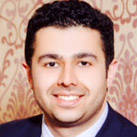In collaboration with Journal of Network Theory in Finance
Financial institutions and markets are highly interconnected, but literature has only recently begun to emerge that maps these interconnections and assesses their impact on financial risks and returns. The conference “Financial Risk and Network Theory 2016” organised in collaboration with the new Journal of Network Theory in Finance (JNTF), continues the successful conferences in 2014 and 2015 in generating new collaborations in this emerging multidisciplinary field.
The Financial Network Visualisation Prize
We are keen to promote and encourage visualisation techniques as a way of helping people understand complex patterns of data in the comprehension of financial networks.
At last year’s conference we were very impressed by the quality and range of visualisation techniques applied in the presentation of networks, and examples from the presentations were collected in a showcase of techniques; in 2015, we awarded the first Cambridge Centre for Risk Studies Prize for Financial Network Visualisation, for the best network visualisation presented at the Conference on 9 September.
2015’s winning image was presented by keynote speaker Mark Flood in his talk On Counter Party Networks, featuring the holding company hierarchy over time for Wells Fargo BHC.
All the visualisations presented by the participants will be entered into the competition. The winning image will be reproduced as a large-scale framed poster for the presenter and their institution.
Research areas
Topics include but are not limited to the following:
- Empirical network analysis that enables better understanding of financial flows, exposures and markets
- Modelling and simulation techniques for measuring interdependent financial risks
- New metrics and techniques for identifying central, vulnerable or systemically important institutions and markets in financial networks and informs regulatory strategies for improving financial stability
- Network modelling of time-series data for financial risk management, asset allocation and portfolio management
- Social network analysis (SNA) in finance, e.g. for making credit and investment decisions
- Applied network visualisation techniques that improve the communication of financial risks and rewards
- Analysis of counterparties and their risk exposure from interconnectivity with the financial system
Day 1: Tuesday 13 September 2016
|
Time |
Session |
|---|---|
|
09:30-10:00 |
Registration |
|
10:00-10:15 |
Welcome |
|
10:15-11:15 |
Talks “Financial complexity”
Trillion dollar shocks to the financial system Watch the presentation on Vimeo Measures of financial network complexity |
|
11:15-11:45 |
Break |
|
11:45-12:15 |
Keynote: “Network valuations in financial systems” |
|
12:15-13:15 |
Talks: “Multilayer financial networks”
The multilayer structure of the financial system Watch the presentation on Vimeo Multiplex financial networks |
|
13:15-14:30 |
Lunch hosted by the Centre for Risk Studies |
|
14:30-15:00 |
Keynote: “Parsimonious modeling with information filtering networks: construction of predictive graphical models from large numbers of heterogeneous data” |
|
15:00-16:00 |
Network Models of Risk
The price of complexity in financial networks Watch the presentation on Vimeo ABM of systemic liquidity risk |
|
16:00-16:30 |
Break |
|
16:30-18:00 |
Paper sessions
I: Markets
II: Interbank networks
III: Complexity and systemic risk
|
|
19:00 |
Dinner at a College hosted by the Centre for Risk Studies |
Day 2: Wednesday 14 September 2016
|
Time |
Session |
|---|---|
|
09:30-10:00 |
Keynote: “New directions for network theory applied to systemic risk: flow of risk, notional excess and portfolio compression” |
|
10:00-11:00 |
Executive Panel: “Networks and evolving analytics demands in large financial institutions” Panel chair: Phillip Straley, Partner, PwC (retired) and Advisory Board Lead, FNA
|
|
11:00-11:30 |
Break |
|
11:30-13:00 |
Talks: “Stress testing and scenario analysis”
From macro to micro variables: underdetermination and network effects – how can machine learning techniques help Watch the presentation on Vimeo Stress testing correlation networks, network models of risk Watch the presentation on Vimeo Reputation risk contagion |
|
13:00-14:00 |
Lunch hosted by the Centre for Risk Studies |
|
14:00-14:30 |
Keynote: “Systemic risk in financial multilayer networks – and how to manage it” |
|
14:30-15:30 |
Talks: “Interconnected risks”
Unsustainable global macroeconomic trends : new granular macro-net models for macroeconomics and macro prudential policy Watch the presentation on Vimeo RiskRank: measuring interconnected risk |
|
15:30-16:00 |
Break |
|
16:00-17:30 |
Parallel sessions
IV: Multilayer financial networks
V: Systemic risk – market based methods
VI: Contagion
|
|
17:30-17:45 |
Closing remarks |
Keynote speakers
Dr Tuomas Peltonen
Deputy Head, European Systemic Risk Board Secretariat
Tuomas Peltonen is Deputy Head of the European Systemic Risk Board (ESRB) Secretariat. His main tasks include management of the ESRB Secretariat, systemic risk analysis and its presentation to the ESRB General Board as well as interaction with ESRB members and stakeholders. Prior to the ESRB, Tuomas was with the European Central Bank (ECB) since 2004, where he worked in various positions at the Directorate General Macroprudential Policy and Financial Stability, in the Directorate General Market Operations and in Directorate General International and European Relations. Prior to the ECB Tuomas worked with the Bank of Finland.
Tuomas received his PhD (Econ) from European University Institute (EUI), Italy in 2005 and holds BSc and MSc (Econ) degrees from University of Turku. His research interests include macroprudential policy and systemic risk analysis. Tuomas has published several academic articles related to banking, financial stability, financial markets and emerging economies in academic journals like Journal of Banking & Finance, Journal of Financial Stability, and IMF Economic Review.
Professor Guido Caldarelli
Professor in Theoretical Physics, IMT Institute for Advanced Studies Lucca
Guido Caldarelli received his PhD from SISSA, after which he was a postdoc in the Department of Physics and School of Biology, University of Manchester. He then worked at the Theory of Condensed Matter Group, University of Cambridge, where he worked with Robin Ball and stayed in Wolfson College. He returned to Italy as a lecturer at National Institute for Condensed Matter (INFM) and later as Primo Ricercatore in the Institute of Complex Systems of the National Research Council of Italy. In this period he was also the coordinator of the Networks subproject, part of the Complexity Project, for the Fermi Centre. He also spent some terms at University of Fribourg (Switzerland) and in 2006 he has been visiting professor at École Normale Supérieure in Paris.
Professor Tomaso Aste
Professor of Complexity Science & Head of the Financial Computing and Analytics Group, UCL Computer Science Department
Tomaso Aste is Professor of Complexity Science and Head of the Financial Computing and Analytics Group (2012-) at UCL Computer Science Department where he is also Director of the UCL Centre for Blockchain Technologies, Programme Director of the MSc in Financial Risk Management and Vice-Director of the Centre for doctoral Training in Financial Computing & Analytics; he is also Member of the Board of the ESRC LSE-UCL Systemic Risk Centre.
Tomaso Aste graduated in Physics at the University of Genoa (1990) and has a PhD in from Politecnico of Milan (1994). Prior to joining UCL he was Reader at the School of Physics, University of Kent (2009-2012) and before that Associate Professor at the Department of Applied Mathematics, Australian National University (2002-2009).
Tomaso Aste has substantially contributed to move forward the knowledge in the research area of complex systems modeling and complex data analytics. His approach consists in combining network theory, statistical physics, data science, multiscale analysis and computational methods to unwind complexity and produce models that are capable to make reliable predictions. Professor Aste’s research is data-driven and it has been applied to complex datasets concerning financial markets, biological systems and business analytics. He is collaborating with regulators, central banks, financial institutions and data analytics companies.
Parsimonious modelling with Information Filtering Networks
Invited speakers
Professor Stefano Battiston
SNF Professor, Department of Banking & Finance, University of Zurich
Stefano Battiston is SNF Professor at the Department of Banking and Finance of the University of Zurich. His work applies the complex networks approach both to the empirical analysis of large economic networks and the modelling of their dynamics. For several years his main interests have been financial contagion, default cascades, and propagation of financial distress, where he combines the insights from the statistical mechanics of networks with the analysis of economic incentives. He has been involved in many international projects, including FOC (Forecasting Financial Crises) the first European project aimed at anticipating structural instabilities in the global financial networks. He is now the coordinator of the FET project SIMPOL that investigates policy modeling in finance and climate finance. From 2015 he also coordinates the FET project DOLFINS that investigates how to better channel finance towards sustainable economy in a networked economy. Within the Financial Stability Program directed by the Nobel laureate Joseph Stiglitz and funded by the Institute of New Economic Thinking, Stefano Battiston coordinates the Working Group on Financial Networks.
The Price of Complexity in Financial Networks
Dr Mark D Flood
Research Principal, Office of Financial Research, US Treasury
Mark D.Flood did his undergraduate work at Indiana University in Bloomington, where he majored in finance (BS, 1982), and German and economics (BA, 1983). In 1990, he earned his PhD in finance from the Graduate School of Business at the University of North Carolina at Chapel Hill. He has taught finance and business at universities in the US and Canada, and worked as a financial economist on issues of regulatory policy and risk management at the Federal Reserve Bank of St Louis, the Office of Thrift Supervision, the Federal Housing Finance Board, and the Federal Housing Finance Agency. He was a founding member of the Committee to Establish a National Institute of Finance. He is currently a Research Principal in the Treasury’s Office of Financial Research. His research has appeared in a number of scholarly journals, including the Review of Financial Studies, the Annual Review of Financial Economics, Quantitative Finance, the Journal of International Money and Finance, the Federal Reserve Bank of St Louis Review, and in the two-volume Handbook of Financial Data and Risk Information.
Measures of Financial Network Complexity: A Topological Approach
Dr Andrew Coburn
Director of External Advisory Board, Centre for Risk Studies
Andrew Coburn is the principal investigator on the research track of understanding financial catastrophe at the Cambridge Centre for Risk Studies, and the convenor of the workshop. Andrew is one of the leading contributors to the creation of the class of catastrophe models that over the past 20 years has come to be an accepted part both of business management in financial services and of public policy making for societal risk. He has extensive experience in developing models and using them for business decision support. Dr Andrew Coburn is a member of the senior management of Risk Management Solutions, the leading provider of catastrophe risk models to the insurance industry.
Trillion Dollar Shocks to the Financial System
Grzegorz Halaj
Financial Stability Expert, European Central Bank
Grzegorz Halaj is a financial stability expert at the European Central Bank dealing with stress testing issues (Troika program country stress tests and the EBA/SSM EU wide stress test) and financial contagion modelling and assessment. Before joining ECB he worked in ALM office of a private bank and as researcher in financial mathematics and in contagion studies (Warsaw School of Economics, CORE in Louvain-la-Neuve, King’s College in London and Fields Institute in Toronto). Grzegorz holds a PhD in financial mathematics and his research interests have been recently focusing on agent-based modelling of contagion and banks’ behaviours in light of the theory of the optimal portfolio choice.
An Agent-based model of liquidity and solvency interactions
Professor Sheri Markose
Professor of Economics, University of Essex
Sheri Markose is a Professor of Economics at the University of Essex and has a PhD from the London School of Economics. She was a Senior Consultant (2011–2014) at the Financial Stability Unit of the Reserve Bank of India where she oversaw the financial network project for systemic risk management. She was founder Director (2002–2009) of the multidisciplinary Centre for Computational Finance and Economic Agents, which pioneered a postgraduate curriculum in Economics and Finance that uses agent-based modelling and complexity economics. Following the 2011 IMF project Sheri did on Systemic Risk from Global Financial Derivatives Markets using network analysis, in 2013, she was appointed as an academic advisor to the G20 OTC Derivatives Coordination Group of the BCBS and FSB for the Macroeconomic Impact Assessment of OTC Derivatives Regulatory Reforms (MAGD). Sheri has been a member of the European Science Foundation Review Panel in the area of socio-economic risks for three years (2014-2016). Her recent publications include systemic risk analytics for financial networks, macro-net models for macro-prudential policy, risk modelling using extreme value theory and on arms races and protean behaviours in complex adaptive systems.
Unsustainable Global Macroeconomic Trends: New Granular Macro-net Models for Macroeconomics and Macro-Prudential Policy
Dr Kimmo Soramäki
Founder, Financial Network Analytics
Kimmo Soramäki is the Founder and CEO of Financial Network Analytics and Editor-in-Chief of the Journal of Network Theory in Finance. Before founding FNA in 2010, he worked for 15 years in policy-making, advisory and multidisciplinary research roles at several central banks – including the European Central Bank and the Federal Reserve Bank of New York. His research has focused on the interconnectedness of financial systems and on systemic risk. He has published in academic journals in the areas of economics, statistical mechanics and operations research and is a frequent speaker at industry and academic conferences. Kimmo holds a Doctor of Science in Operations Research and a Master of Science in Finance.
Stress Testing Correlation Networks
Professor Stefan Thurner
Professor for Science of Complex Systems, Medical University of Vienna
Stefan Thurner is full professor for Science of Complex Systems at the Medical University of Vienna, where he chairs the Section for Science of Complex Systems. Since 2007 he is external professor at the Santa Fe Institute, since 2010 senior researcher at IIASA, since 2015 guest professor (economics) at Nanyang Technological University, Singapore, and since 2015 president of the Complexity Science Hub Vienna. He has two PhDs, one in theoretical physics from the Technical University of Vienna, and one in economics from the University of Vienna. Thurner has published about 180 scientific articles in fundamental physics, applied mathematics, complex systems, life sciences, economics and finance (price formation, regulation, systemic risk) and lately in computational social sciences. He holds two patents. His work has received some media interest from the New York Times, BBC World, Nature, New Scientist and Physics World, and has been featured in more than 450 newspaper, radio and television reports.
Systemic risk in financial multilayer networks – and how to manage it
Dr Peter Sarlin
Associate Professor of Economics, Hanken School of Economics
Director, RiskLab Finland
Peter Sarlin is an Associate Professor of Economics at Hanken School of Economics (Helsinki, Finland), and Director of RiskLab Finland. Currently, he is a visiting scholar with the Center of Excellence SAFE at Goethe University Frankfurt, and a research associate with the Systemic Risk Center at London School of Economics, IWH Halle Institute for Economic Research and the Systemic Risk Hub, as well as a board member of the IEEE Analytics and Risk Technical Committee and the IEEE Computational Finance and Economics Technical Committee. He is also an Associate Editor of Journal of Network Theory in Finance and Intelligent Systems in Accounting, Finance & Management. Peter received his PhD (Econ) from the Department of Information Technologies, Åbo Akademi University (Turku, Finland) in 2013. He has also studied at London School of Economics, Stockholm School of Economics and Stockholm University, and has been a financial stability expert and external consultant, among other roles, with the European Central Bank, Bank of Finland, Deutsche Bundesbank and De Nederlandsche Bank. Peter’s book Mapping Financial Stability was published by Springer in May 2014. His current research interests include systemic risk, macroprudential supervision, machine learning and visual analytics.
RiskRank: Measuring interconnected risk
Dr Serafin Martinez-Jaramillo
Senior Financial Researcher, Banco de México
Serafin Martinez-Jaramillo is a senior financial researcher at the financial stability general directorate at Banco de México. His research interests are: financial stability, systemic risk, financial networks, bankruptcy prediction, genetic programming and machine learning. He developed an agent-based financial market to study the link between agent behavior and the stylised facts in stock markets returns. Serafin has published book chapters, encyclopedia entries and papers in high impact international journals like: IEEE Transactions on Evolutionary Computation, Journal of Economic Dynamics and Control, Journal of Financial Stability, Journal of Network Theory in Finance, Computational Finance, Computational Management Science and the International Journal of Intelligent Systems in Accounting, Finance and Management. He has also been member of the editorial committee of many conferences and reviewer of international journals like: IEEE Transactions on Evolutionary Computation, Journal of Financial Stability, Journal of Economic Dynamics and Control, Applied Intelligence, Neural Computing and Applications, International Journal of Modern Physics C and Journal of Network Theory in Finance. Serafin holds a PhD in Computational Finance from the University of Essex, where he is currently a visiting fellow. He has belonged to the Mexican National Researchers System since 2009.
Multiplex financial networks: revealing the real level of interconnectedness in the financial system
Dr Dror Y Kenett
Interdisciplinary Researcher, Office of Financial Research, US Department of the Treasury
Dror Y Kenett joined the OFR’s Financial Markets team in 2015. He has a PhD in physics from Tel-Aviv University and was a research scientist at Boston University. Dror applies his scientific background to financial stability questions, focusing largely on network-based models, financial contagion and spillovers, and correlation-based models. Kenett has written OFR working papers, contributed to the OFR annual report, and has participated in the development of OFR monitoring tools. He has published more than 40 papers in financial, physics, and engineering journals such as the Journal of Banking and Finance, Journal of Risk and Financial Management, Quantitative Finance, Nature Physics, and Scientific Reports.
The Multilayer Structure of the Financial System
Alexander Denev
Head of Quantitative Research, IHS Markit
Alexander has worked as a Founder of Graphrisk – a company focused on the use of graphical models in Finance, and as a Senior Advisor to Risk Dynamics – a risk advisory part of McKinsey & Company. Prior to that he was a Senior Team Leader in the Royal Bank of Scotland, where his responsibilities included development of the stress testing methodology, country risk ranking and early warning indicators. Before joining RBS, Alexander was in charge of the Basel II/III implementation project for the European Investment Bank (EIB) and European Investment Fund (EIF). He participated in the engineering of both the EFSF (European Financial Stability Facility) and the ESM (European Stability Mechanism).
Alexander has a MSc in Mathematical Finance from University of Oxford where he is currently Visiting Lecturer on Bayesian Risk Management and Graphical Modelling, and a MSc in Theoretical Physics from University of Rome. He wrote several papers and two books on topics ranging from stress testing and scenario analysis to asset allocation.
From macro to micro variables: underdetermination and network effects – how can machine learning techniques help
Phillip Straley
Advisory Board Lead, Financial Network Analytics Partner, PwC (retired)
Phillip Straley has been a leading advisor to commercial and investment banks for the past 25 years on both risk management and prudential and conduct focused regulation. He has also worked extensively as an advisor to both national and supranational financial regulatory bodies, with a particular focus on Asia Pacific, where he has been based for the past 20 years. Phillip currently divides his time between independent advisory, Fintech investments, and Board roles, and is the Advisory Board Lead of Financial Network Analytics. He has previously led the finance and risk, risk analytics and regulatory consultancy practices of several of the world’s prominent professional services firms.
Paper presenters
Dr Alessio Emanuele Biondo
Assistant Professor of Economic Policy, University of Catania
Alessio Emanuele Biondo is Assistant Professor of Economic Policy at the University of Catania where he teaches International Economic and Financial Policy at the Postgraduate Master in Corporate Finance, and Macroeconomic Policy at the Bachelor course in Economics. He has a PhD in the field of economics and statistics from the University of Catania and a MSc in Economics from the University of Manchester (UK). He has gained the National Scientific Habilitation for the position of Associate Professor of Economic Policy. His research is devoted mainly to econophysics and financial markets, macroeconomics and labour productivity, environmental economics and sustainability. His recent publications have been focused on critical events in financial market, contagion mechanisms on small-world topologies and order-book modelling.
Order book modeling and financial stability
Riccardo Junior Buonocore
PhD Candidate, King’s College London
Riccardo is currently undertaking a PhD at the Department of Mathematics at King’s College London. He has an MSc in Theoretical Physics with a thesis in quantum gravity. His research interests are the Econophysics and the mathematical tools applied to modelling financial time series, in particular the scaling analysis.
Marco Valerio Geraci
PhD Candidate, Université Libre de Bruxelles (ECARES) and the Université de Namur (CeReFiM)
Marco Valerio Geraci is a PhD candidate in Economics at the Université libre de Bruxelles (ECARES) and the Université de Namur (CeReFiM). His research interests lie in the fields of financial econometrics, network theory and tail dependence. In particular, he is interested in applying econometric techniques to develop market-based measures of financial interconnectedness and systemic risk. Outside of university, he has worked at the DG Financial Stability of the ECB and at the risk management desk of Ageas SA. He holds an MSc in Economics from the London School of Economics and a BSc in Economics from the University of Warwick.
Measuring interconnectedness between nancial institutions with Bayesian time-varying vector autoregressions
Jean-Baptiste Hasse
PhD Student, University of Paris-Saclay
Jean-Baptiste Hasse is a PhD Student in economics and finance at the university of Paris-Saclay. He obtained a Master Degree in finance after having studied mathematics. He also works as a quantitative analyst for an investment consulting firm, Insti7, specialised in financial management for non-profit organisations as foundations, mutual provident societies or health care mutuals. Jean-Baptiste is especially in charge of R&D activities. His current research interests include economic uncertainty, financial networks and systemic risk.
Anne-Caroline Hüser
Research Analyst, European Central Bank and PhD candidate, Goethe University, Frankfurt
Anne-Caroline Hüser is a PhD candidate in Economics at the Goethe University, Frankfurt and a Research Analyst at the European Central Bank (ECB). Her research interests lie in fields of interbank networks, financial stability as well as macroprudential and bank resolution policies. After a research stay at the Bundesbank’s Research Centre, she is currently working on a research project simulating the systemic implications of bail-in in a multi-layer network at the ECB’s Directorate General for Macroprudential Policies and Financial Stability. Additionally, she works as a Visiting Lecturer at the Nancy campus of Sciences Po Paris, giving a lecture on the economics and politics of the Euro. She also regularly reviews books on the Euro for the Journal of Common Market Studies. Anne-Caroline holds an MSc in European Political Economy from the London School of Economics and a BA in Economics and Politics from Sciences Po Paris.
The systematic implications of a bail-in: a multi-layered network approach
Prokopios Karadimos
Masters Candidate, Aristotle University of Thessaloniki
Prokopios Karadimos is currently completing the masters programme on Complex Systems and Networks at Aristotle University of Thessaloniki, Greece with outstanding performance while holding a position in the finance department of Maersk Line. Prokopios has also graduated as valedictorian from his undergraduate degree in Accounting and Finance at University of Macedonia, Greece. He has presented and published papers on cyber risk management, market efficiency, financial management and electroencephalography (EEG) networks. His main interests and future aspirations include the estimation and mitigation of systemic risk as well as the contribution to the construction of a more resilient financial system through the use of big data and complex networks.
Oisín Kenny
Markets Risk Analyst, Markets Supervision, Central Bank of Ireland
Oisín Kenny is a Markets Risk Analyst at the Central Bank of Ireland. He analyses a number of regulatory datasets to provide intelligence to supervisors and policymakers on funds and special purpose vehicles. Oisín’s research interests include the nexus between leverage and liquidity, derivatives, contagion, and financial stability monitoring through network analysis and machine learning. He also established and chairs the Financial Innovation Network – an internal group focused on tracking developments in new financial technologies. Oisín received his MSc in Economics/International Finance from the National University of Ireland, Galway and his BA in Economics and Political Science from Boston College.
Network analysis using EMIR credit default swap data: evidence from Irish domiciled special purpose vehicles (SVPs)
Dr Negar Kiyavash
Associate Professor of Industrial and Enterprise Engineering and Electrical and Computer Engineering, University of Illinois at Urbana-Champaign
Negar Kiyavash is Willett Faculty Scholar at the University of Illinois and a joint Associate Professor of Industrial and Enterprise Engineering and Electrical and Computer Engineering. She is also affiliated with the Coordinated Science Laboratory (CSL) and the Information Trust Institute. She received her PhD degree in electrical and computer engineering from the University of Illinois at Urbana-Champaign in 2006. Her research interests are in design and analysis of algorithms for network inference. She is a recipient of NSF CAREER and AFOSR YIP awards and the Illinois College of Engineering Dean’s Award for Excellence in Research.
Econometric modeling of systematic risk: going beyond pairwise comparison and allowing for nonlinearity
Tomáš Krabec
Professor of Finance and court-appointed expert
Dr Tomáš Krabec, PhD, MBA, teaches corporate finance and business valuation as an associate professor at the Department of Finance and Accounting at the ŠKODA AUTO University and at the Department of Finance and Business Valuation at the University of Economics in Prague. As a visiting professor Dr Krabec works continuously at foreign universities (Germany, Finland, France, Spain). Since 2010 Dr Krabec works as a forensic expert specialised in business valuation and valuation of securities. He has published dozens of articles in peer-reviewed scientific journals, and several books; his current research is focused in the valuation of intangible assets in cognitive systems, distributed ledgers and smart contracts.
Dr Matt V Leduc
Research Scholar, International Institute for Applied Systems Analysis (IIASA)
Matt V Leduc is a Research Scholar at the International Institute for Applied Systems Analysis (IIASA), Austria. He works in the Advanced Systems Analysis (ASA) program. He obtained his PhD from Stanford University, where he worked on network game theory. He has also been a visiting post-doctoral fellow at ETH Zurich and a visiting research fellow at the University of Cambridge (Department of Economics/INET Institute). Dr Leduc’s research focuses mainly on game theory, the economics of networks and network science.
Visit Matt’s personal research webpage for more information on his research
Incentivizing resilience in financial networks
Jussi Lindgren
Ministerial Advisor, Ministry of Finance, Finland
Jussi Lindgren is a Ministerial Advisor at the Ministry of Finance, Finland. He is working mostly on Finland’s strategic debt management, including risk management, bank regulation (CRR/CRD/Basel III) and accounting issues (IFRS 9). Before his current work, Jussi was employed by the European Commission for three years, working for the Eurogroup and Eurogroup Working Group secretariat in Brussels. His tasks included the preparation of the Eurogroup meetings, Banking Union issues and issues around European Stability Mechanism (ESM). Jussi is currently working towards his PhD in systems analysis and operations research at Aalto University School of Science. His research interests include financial network centrality measures, financial market cascades and the application of neural networks in the field of financial networks. Jussi holds a MSocSci in Economics from University of Helsinki.
Identifying the most systematically important banks in a bank network using logistic regression
Naoise Metadjer
Economist, Markets Directorate of the Central Bank of Ireland
Naoise Metadjer is an economist in the Markets Directorate of the Central Bank of Ireland. His current role focuses on risk analysis of investment and money market funds, particularly related to portfolio liquidity, leverage and market risk. Naoise previously worked in banking supervision where he was involved in approval and ongoing validation of banks’ internal risk models as well as the development of challenger models for probability of default and impairment provisioning. Naoise is also completing a PhD in Economics at the National University of Ireland Galway under the supervision of Dr Srinivas Raghavendra. His research interests include time series and cross-sectional econometrics, non-linear time series analysis, network theory, complex systems and systemic risk analysis.
Interconnectedness as a measure of systematic risk potential in the S&P 500
Dr Peter Mitic
Head of Advanced Analytics, Santander
Peter studied mathematics at the University of Oxford, and later gained a PhD from the Open University, where he researched object-oriented modelling techniques with computer algebra. After some years as a mathematics lecturer, he has been working with risk-related projects in major banks in the UK and the Netherlands for 20 years, and is now Head of Advanced Analytics at Santander (UK). There he has been active in developing new statistical techniques in operational risk, and in formulating a framework for measuring reputational risk so that it can be quantified in monetary terms. In addition, Peter coordinates and supervises graduate student projects at University College London and the University of Oxford. Away from dry land he is a keen scuba diver.
Reputation Risk Contagion
Panagiotis Panagiotou
Masters Candidate, Aristotle University of Thessaloniki
Panagiotis Panagiotou is a postgraduate student on the inter-faculty masters programme Complex Systems & Networks at Aristotle University of Thessaloniki, and he is currently pursuing his masters thesis. He studied electrical and computer engineering at the University of Patras (Greece), where he was a laboratory supervisor on automation systems (2013), his research focusing on electrical machines. His diploma thesis was of significant originality in the field of induction motors’ electromagnetic behaviour and led to three published papers. As an undergraduate student at the University of Patras he co-authored papers with lecturers and assistant professors at the Electrical & Computer Engineering Department that appeared in the International Journal of Computational Engineering (Hindawi, 2013), and that were presented at one international conference (ICEM, 2012) and one Greek conference (2012). He has worked on projects in control theory, signal processing, adaptive control and information theory, while his latest work focuses on data analysis and modelling of biological and financial networks.
Laura Parisi
PhD Candidate, University of Pavia
Laura Parisi is a PhD Candidate in Economics and Finance at the University of Pavia, and she has been a visiting PhD Student at the NYU Stern School of Business. She obtained a Bachelor Degree in Physics and a Master Degree in Theoretical Physics. She also works as an advisor for the Association of Italian Risk Managers. Her current research interests include systemic risk, risk management and monetary policy transmission.
Co-risk: measuring systematic risk through default probability contagion
Dr Ali Rais Shaghaghi
Research Assistant, Centre for Risk Studies
Ali Rais Shaghaghi is a Research Assistant at the Centre for Risk Studies, University of Cambridge, and is researching a model of contagion effects in the international banking network. He was previously a KTP Associate and a Marie Curie Fellow at the University of Essex. Ali holds a PhD in Computational Finance from the Centre for Computational Finance and Economics Agents at the University of Essex. His research mainly focuses on analysing systemic risk and contagion in financial systems using computational network models.
Majeed Simaan
PhD Candidate, Rensselaer Polytechnic Institute (RPI)
Majeed Simaan is a PhD Finance candidate at Rensselaer Polytechnic Institute (RPI), where he is engaged in a number of research projects that involve faculty from different departments: business school, system engineering, and computer science. For his dissertation, Majeed focuses on banking and asset allocation, where he studies interconnectedness among financial institutions from liquidity and systemic risk perspective.
Before joining RPI, Majeed received graduate training from the London School of Economics and Political Science (LSE) via the Risk and Stochastics Group at the Department of Statistics. He holds both BA and MA in Statistics from the University of Haifa, with graduate training in Economics and Finance from both Tel Aviv University and the Hebrew University at Jerusalem.
Filtering for risk assessment of interbank network
Michail Vamvakaris
PhD Candidate, Institute of Risk & Uncertainty, University of Liverpool
Michail joined the University of Liverpool in September 2016 as a PhD student at the Institute of Risk & Uncertainty. He completed his undergraduate studies in economics with distinction from the Aristotle University of Thessaloniki, where he also obtained a masters degree in complex systems and networks. Between 2013 and 2015 he was general secretary of the Association of South Eastern and Black Sea Region Economic Universities.
Percy Venegas
Financial Technology Expert, Commercial Solutions Research, Economy Monitor Intelligence
Percy Venegas is a former Intel engineer and co-founder of Economy Monitor. He has been active in academia, industry and the non-profit sectors for almost two decades. Percy holds an MBA in International Business from MIB School of Management in Trieste, Italy. He attended the MIT Sloan China Program, Lingnan University College at Sun Yat Sen University in Guangzhou, and earned an Executive Master in Sustainable Development and Corporate Responsibility from EOI Business School, Campus Universidad Complutense de Madrid. He has also lived in New York and is currently based in Costa Rica. He was in the Founding Advisory Board of the Social Venture Capital Conference, Latin America, Caribbean and South Florida. His publications appear in journals such as International Advances in Economic Research, and Financial Assets and Investing. His coming book in co-authorship with Dr Tomas Krabec, Fields Finance, offers a behavioral finance and complex systems view on value and risk in intangible flows- including those enabled by financial technology in artificial/augmented intelligence, blockchains, and the digital economy.
Dr Richard Harmon
Director, EMEA Financial Services, Cloudera
Dr Harmon support’s Cloudera’s Financial Services business across the EMEA region. He joined Cloudera in May, 2016 and has over 25 years of experience in Capital Markets with specialisations in Risk Management, Advance Analytics and Fixed Income Research. His research interest is focused on approaches for measuring systemic risk as well as the development of a systemic risk platform.
Richard started his post-academic career at the US-Fed followed by leading fixed income research teams at Citibank, Bankers Trust, JP Morgan and Bank of America. He is the co-founder of a GMAC funded start-up called Risk Monitors which was acquired by BlackRock where he was an MD & Partner in the Risk Management Group. Richard left Blackrock to start and manage the North American business for Norkom Technologies which was later sold to BAE systems. For the past six years Richard has been the Director, EMEA Capital Markets at SAP, where he helped grow the business across the EMEA region.
Dr Harmon holds a PhD in Economics with specialisation in Econometrics from Georgetown University.
- Andrew Coburn, Centre for Risk Studies, University of Cambridge
- Tiziana Di Matteo, Department of Mathematics, King’s College London
- Kimmo Soramäki, Financial Network Analytics
- Ali Rais Shaghaghi, Centre for Risk Studies, University of Cambridge
Journal of Network Theory in Finance
The Journal of Network Theory in Finance (JNTF) is an interdisciplinary journal publishing academically rigorous and practitioner-focused research on the application of network theory in finance and related fields, bringing together research carried out in disparate areas within academia and other research institutions by policymakers and industry practitioners.





































